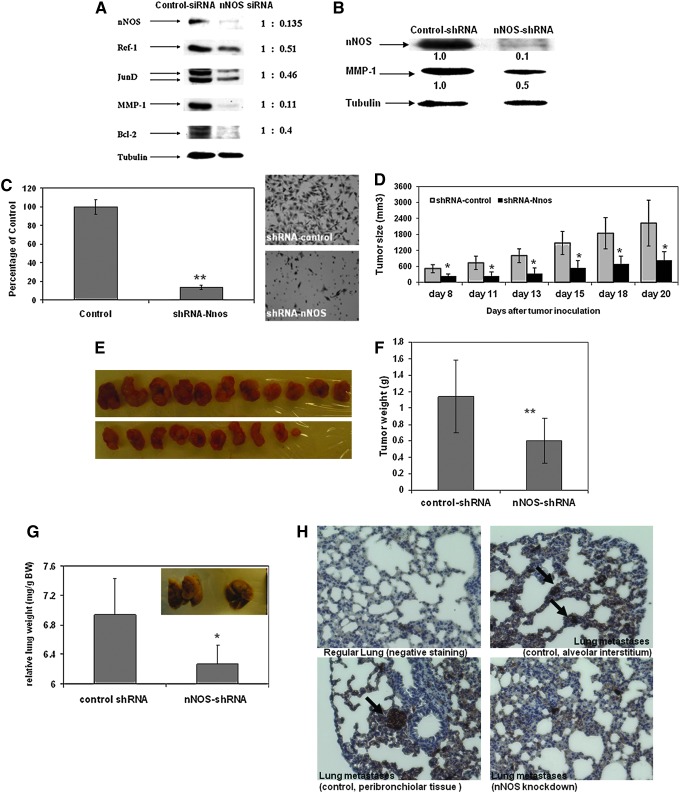FIG. 3.
Effects of nNOS depletion on melanoma invasion and growth. (A, B) nNOS depletion in melanoma is associated with downregulation of genes involved in proliferation and invasion. Metastatic melanoma cells were transfected with either nNOS small interfering RNA (siRNA) (A, Lu1205 cells) or lentiviral shRNA-nNOS (B, A375 cells). Whole cell lysates were collected for immunoblotting assay. (C) Matrigel invasion assay. The represented data were from A375 metastatic melanoma cells with stable nNOS knockdown. Similar changes were also evident in Lu1205 cells (Supplementary Fig. S2). (D–G) Stable knockdown of nNOS inhibited tumor growth and prevented lung metastases in vivo in a xenograft mouse model. About 1×106 A375/control-shRNA or A375/nNOS-shRNA cells were injected to nude mouse subcutaneously on blank. The growth of tumor (D) was measured three times a week. Tumor volume was calculated as: tumor volume (mm3)=(length/2)×(width)2. The weight of final harvested tumor xenografts (g, panel F) and relative lung wet weight (mg/g body weight, panel G) were measured by the end of experiment. *p<0.05 compared to control ones that were injected with A375 cells carrying shRNA-control construct. N=10. Bars: mean±SD. *p<0.05. (H) Successive sections from paraffin-embedded lung tissues were immunohistochemically stained with antibody against HMB-45 to confirm the lung metastases of melanoma xenograft tumor model. Nuclei were counterstained with hematoxylin. To see this illustration in color, the reader is referred to the web version of this article at www.liebertpub.com/ars

